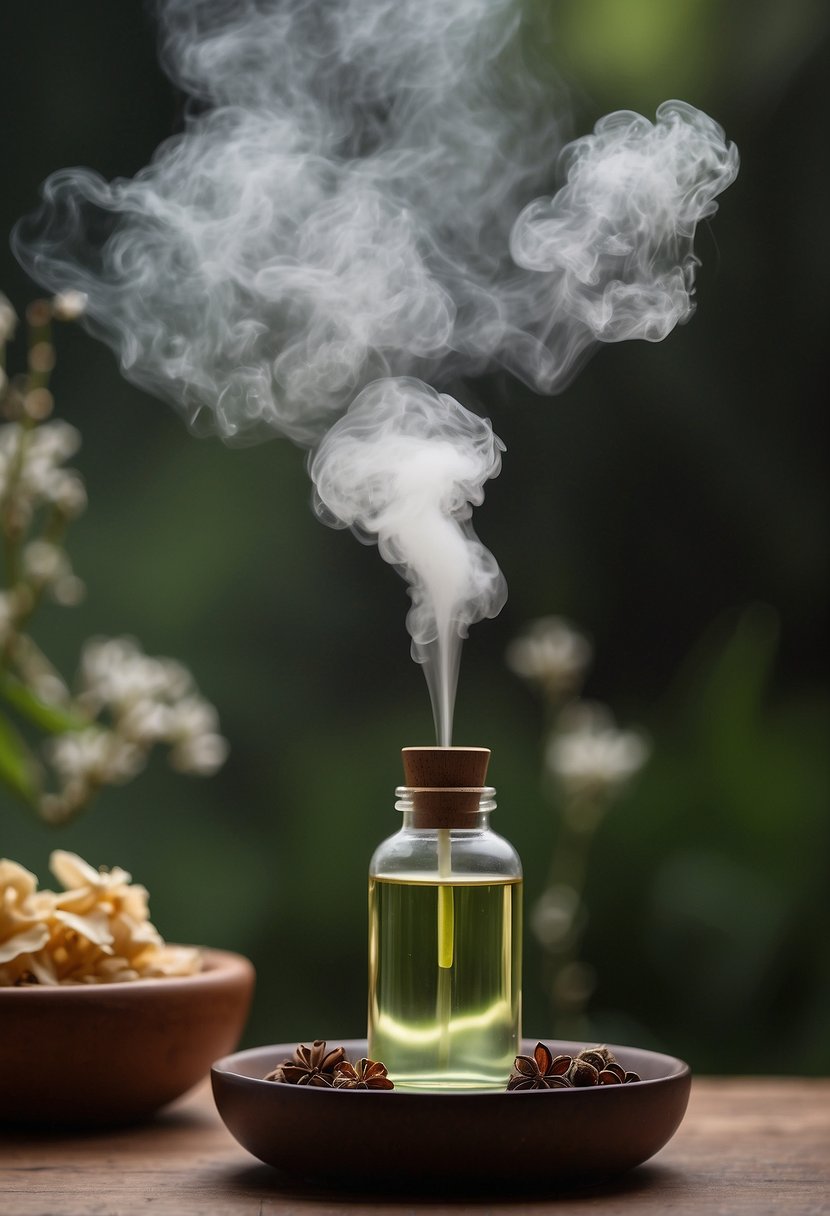Is Breathing Essential Oils Safe? A Friendly Guide to Understanding the Risks and Benefits
Breathing essential oils has become a popular practice for relaxation, stress relief, and aromatherapy. Essential oils are derived from plants and can be inhaled through a diffuser, added to bathwater, or applied directly to the skin. While essential oils have many benefits, you may be wondering if breathing them is safe.

According to the American Lung Association, the inhalation of volatile organic compounds (VOCs) commonly found in essential oils can have negative effects on the respiratory system. Individuals can have different reactions to essential oils, just like they might to other medicines, products, allergens, or irritant triggers. In fact, some essential oils may actually trigger airway inflammation and asthma symptoms when inhaled.
It’s important to note that the safety of any essential oil depends largely on the person using it. Some essential oils may be safe for some people but not for others. Therefore, it’s essential to do your research, consult a healthcare professional, and test essential oils on a small patch of skin before using them in larger quantities.
Health Benefits and Risks

Potential Therapeutic Effects
Breathing essential oils can have potential therapeutic effects on your physical and mental health. Essential oils are extracted from plants and are known for their aromatic properties. They can be used for aromatherapy, which is a holistic treatment that uses essential oils to improve physical and emotional well-being.
Some essential oils have antibacterial, antiviral, and anti-inflammatory properties, which can help boost your immune system and reduce inflammation in your body. Essential oils like lavender, peppermint, and eucalyptus can help relieve stress, anxiety, and depression.
Common Risks and Side Effects
While essential oils have potential therapeutic effects, there are also common risks and side effects associated with breathing them. Essential oils are highly concentrated and can be toxic if ingested or used improperly.
Breathing essential oils directly from the bottle or diffuser can cause irritation to your eyes, nose, and throat. It can also trigger allergic reactions in some people. Essential oils can also interact with medications and cause adverse reactions.
It is important to dilute essential oils before use and follow safety guidelines. Always do a patch test before using essential oils on your skin and consult with a healthcare professional if you have any underlying medical conditions.
In conclusion, breathing essential oils can have potential therapeutic effects on your physical and mental health. However, it is important to be aware of the common risks and side effects associated with their use. By following safety guidelines and using essential oils properly, you can safely enjoy the benefits of aromatherapy.
Safety Guidelines

When using essential oils, it’s important to follow proper safety guidelines to avoid any potential risks. Here are some essential oil safety guidelines to keep in mind:
Proper Dilution Practices
Essential oils are highly concentrated and should be diluted before use to avoid skin irritation or other adverse reactions. As a general rule, you should keep concentration levels of essential oils below 5 percent. Diluting at 1 percent is equivalent to adding 6 drops of essential oil to 1 ounce of carrier oil. Always use a high-quality carrier oil, such as jojoba, coconut, or sweet almond oil, when diluting essential oils.
Safe Diffusion Duration
Diffusing essential oils can be a safe and effective way to enjoy their benefits. However, it’s important to use them safely and avoid overexposure. When diffusing essential oils, it’s recommended to limit the diffusion time to 30-60 minutes at a time and take breaks in between. This will help prevent any potential adverse effects, such as headaches or respiratory irritation.
In addition to these guidelines, it’s important to choose high-quality essential oils from reputable sources. Always store essential oils in a cool, dry place, and keep them out of reach of children and pets. If you have any concerns or experience any adverse reactions, stop using the essential oil immediately and seek medical attention if necessary.
By following these safety guidelines, you can safely enjoy the benefits of essential oils without any potential risks.
Consulting Healthcare Professionals

When it comes to using essential oils, it is always a good idea to consult with your healthcare professional. They can help you determine if essential oils are safe for you to use, and if so, which ones and in what manner.
Your healthcare professional can also help you determine if there are any potential risks associated with using essential oils, such as interactions with medications or underlying health conditions.
It is important to note that not all healthcare professionals are knowledgeable about essential oils. Therefore, it is important to seek out a healthcare professional who has experience with essential oils and can provide you with accurate and reliable information.
Your healthcare professional can also help you determine the best way to use essential oils, whether it be through inhalation, topical application, or ingestion. They can also help you determine the appropriate dosage and frequency of use.
Overall, consulting with your healthcare professional is an important step in ensuring the safe and effective use of essential oils. By working together, you can develop a plan that is tailored to your individual needs and preferences, while also ensuring your safety and well-being.

2 Comments